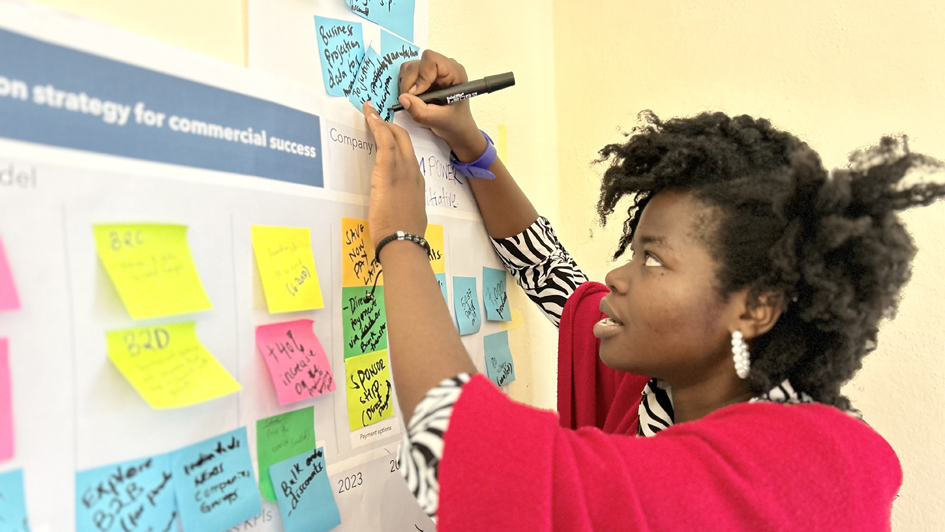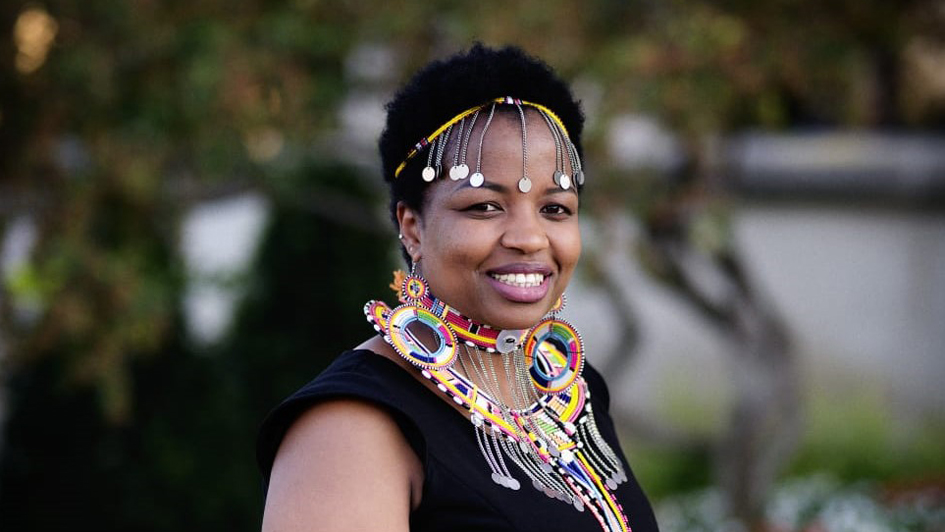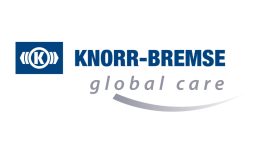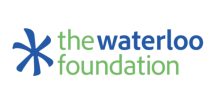Creating a period-friendly world – The Female Health and Hygiene Accelerator Bootcamp has kicked off in Naivasha, Kenya

Bootcamp participants work intensively on their business models and acceleration strategies.
© Siemens Stiftung
Jackline is one of the 10 Entrepreneurs participating at the boot camp of the Female Health and Hygiene Accelerator Program, which is taking place between Sept 30th and Oct 4th in Naivasha, Kenya.
Working towards a period-friendly world is the underlying goal of the program, which was launched by Siemens Stiftung in partnership with Seecon Impact and Cewas as well as funding and implementation partners. The gap to access Menstrual Hygiene products and Services is often filled by NGOs. Being the first accelerator program specifically addressing women’s health and female hygiene in a market economy environment makes this engagement unique and is an enriching experience for the participating Social Entrepreneurs as well as for the implementing team.
“I am not only equipped with innovative strategies to scale our reach but also inspired to think critically about the social impact we can achieve preparing me to navigate the challenges in this field and to create solutions that genuinely meet the needs of adolescent girls and young women in our community.
Connecting with like-minded individuals has been an enriching aspect of this boot camp with exposure to diverse perspectives and shared experiences fostering an environment of possible collaborations,” Jackline adds on her experience attending the boot camp.
Poor access to Menstrual Hygiene Management heavily impact girls and women’s social and economic opportunities. Around 500 million women and girls worldwide lack secure access to resources for menstrual health and hygiene (The World Bank, 2022). In Kenya more than half of all menstruators cannot afford monthly hygiene products (Kenyan Ministry of Health, 2020). In Ghana the prevalence of menstruation-related school absenteeism was 27.5% in 2021, whereas in Uganda 23% of the girls leave school at the age of 12-18 years when they start menstruating (MoES).
As women and girls usually miss up to 20% of the school year, because of poor MH Management, they receive less education, which has a direct impact on their chances for high quality education, income generation and in a broader sense, significantly reduces economic development in the villages, the country and the entire continent.






